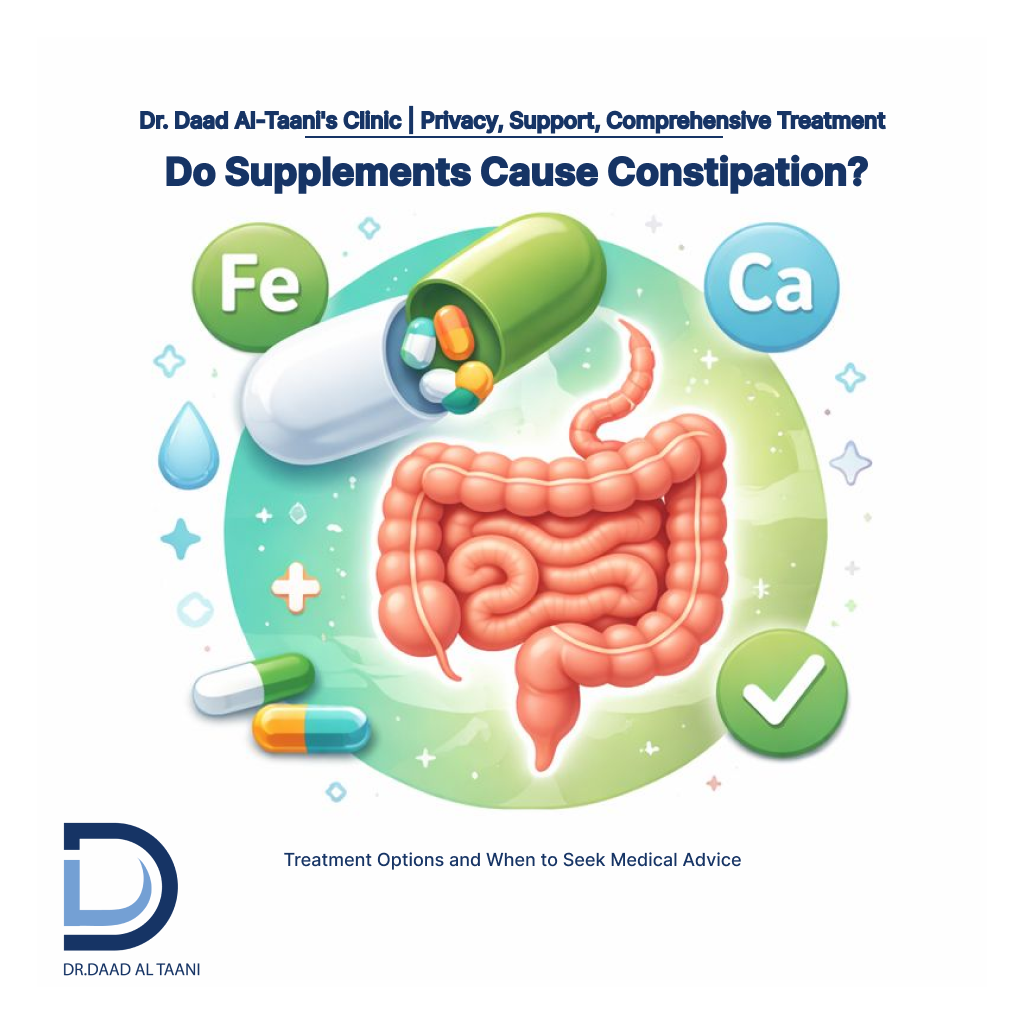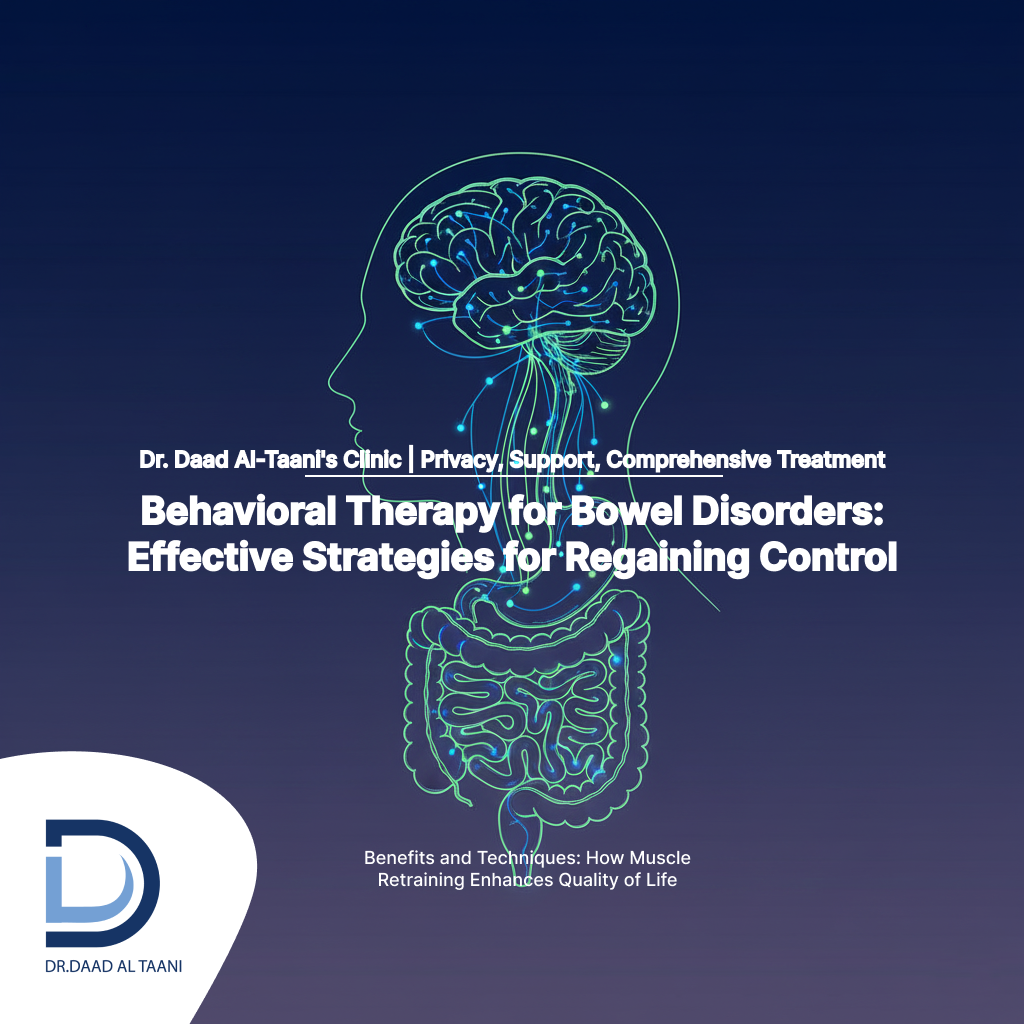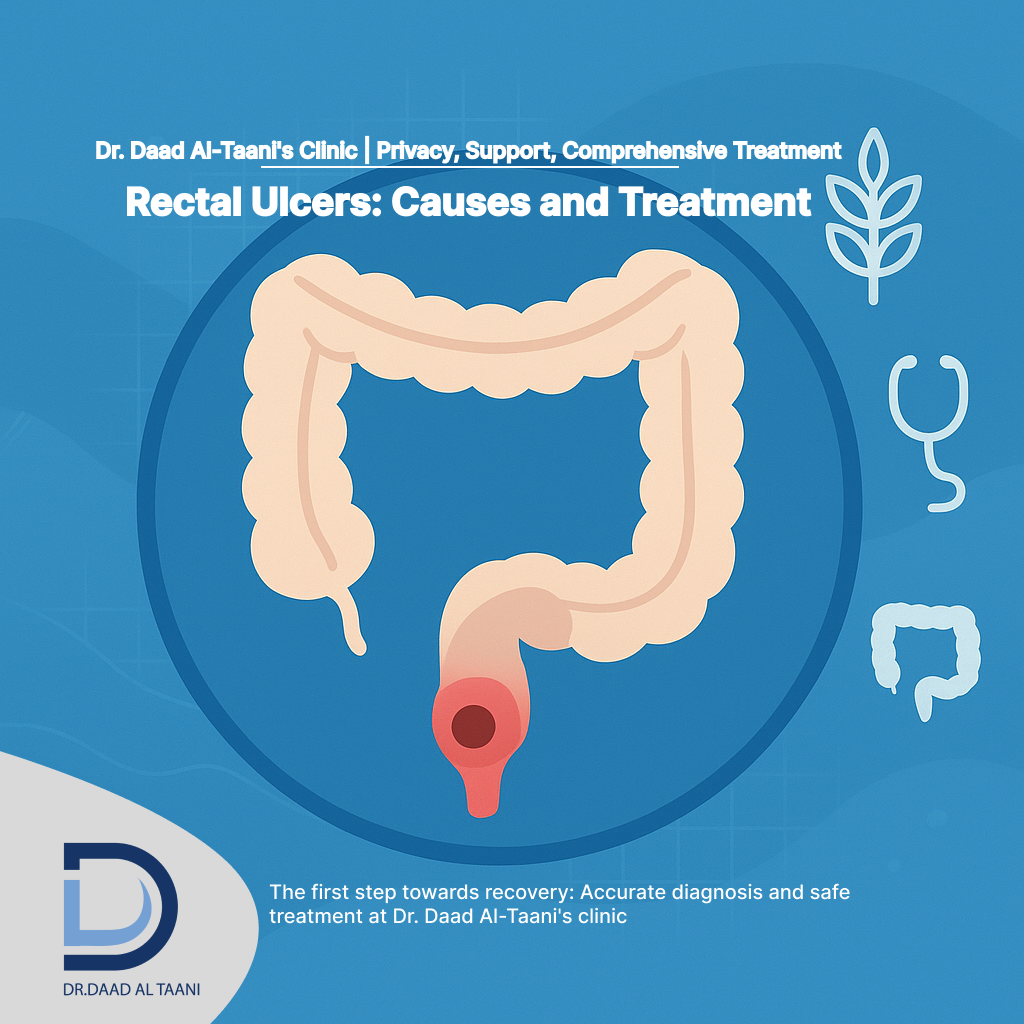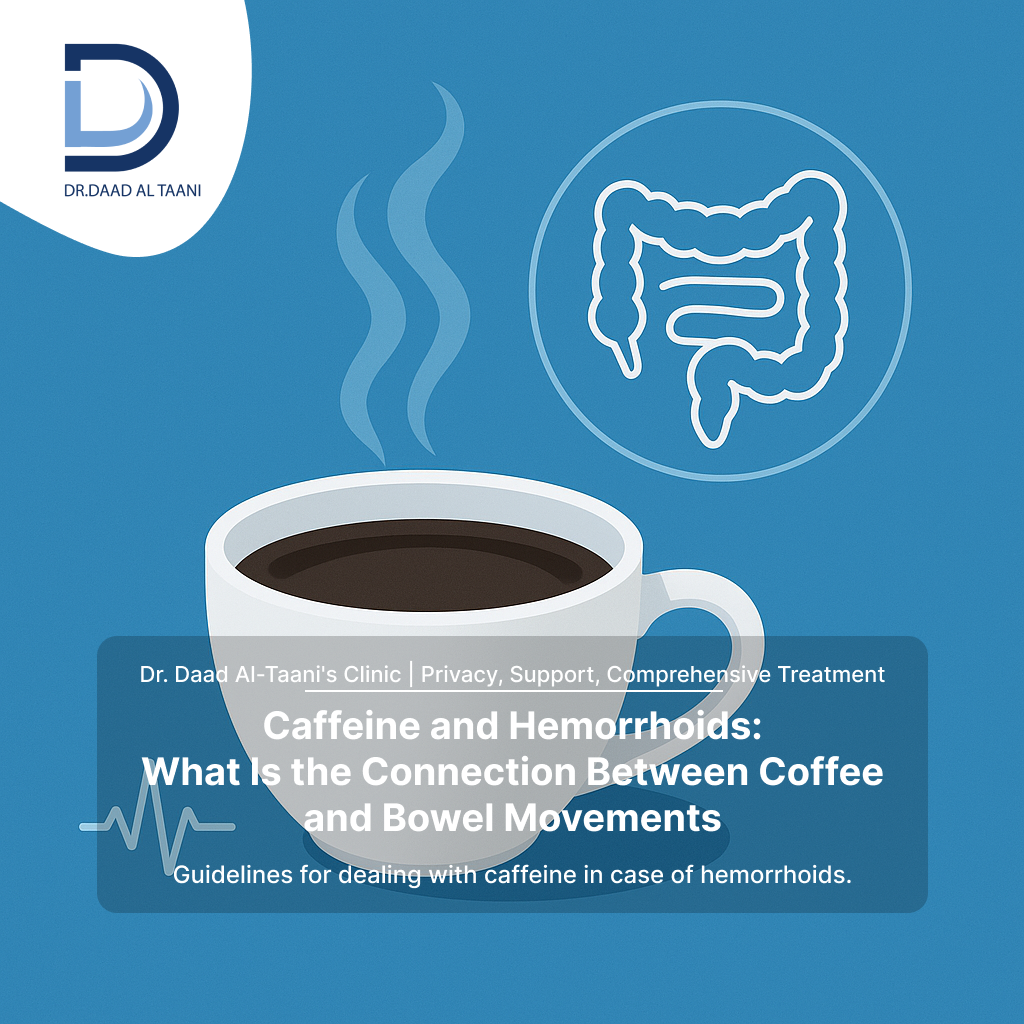A healthy diet is not only a way to manage weight but also a cornerstone of digestive health and bowel regulation. Many cases of chronic constipation or diarrhea are directly linked to the type of foods consumed and daily eating patterns.
In this article from Dr. Daad Al-Taani’s Clinic, we highlight how diet affects bowel disorders and provide key recommendations for maintaining balance.
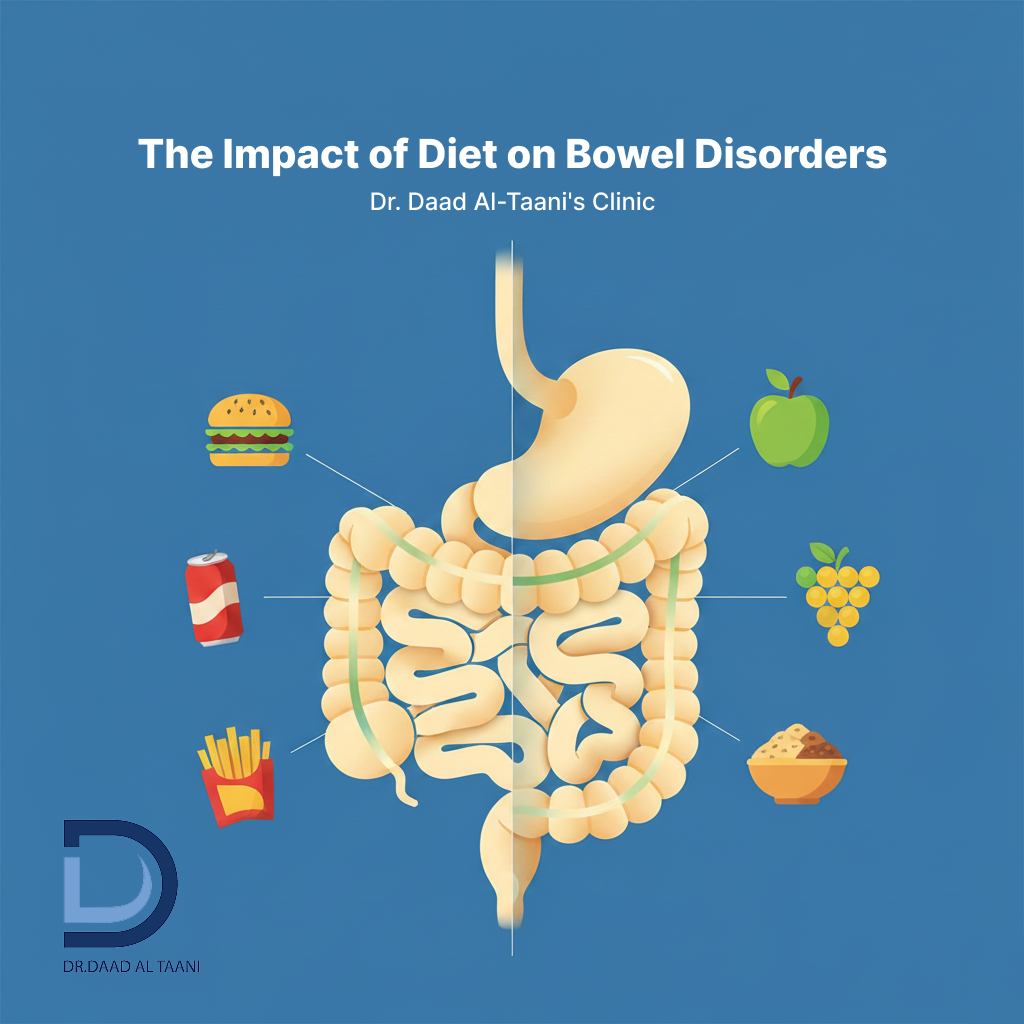
The Impact of Diet on Bowel Disorders
How Does Diet Affect the Bowels and Bowel Movements?
- Dietary Fiber: Increases stool bulk and softness, making it easier to pass. Lack of fiber is a common cause of constipation.
- High-fat and Fried Foods: Slow down digestion and can cause diarrhea or bloating.
- Caffeine and Carbonated Drinks: Sometimes overstimulate the bowel, leading to diarrhea or cramps.
- Dairy Products: Can trigger diarrhea and bloating in people with lactose intolerance.
- Water: Insufficient fluid intake hardens stool and makes bowel movements more difficult.

Types of Diets and Their Effects
1. Low-Fiber Diet:
- Common in people who consume mostly white bread, pastries, and meat.
- Leads to chronic constipation and difficulty passing stool.
2. High-Fiber Diet:
- Based on vegetables, fruits, and whole grains.
- Reduces constipation and improves bowel regularity.
3. High-Fat and High-Protein Diets:
- Such as keto or Atkins diets.
- May cause fatty diarrhea or irregular bowel movements.
4. Irregular Eating Patterns:
- Frequent fast food and skipping meals without fixed times.
- Disrupts the body’s natural bowel rhythm, causing alternating constipation and diarrhea.
Bowel Disorders Linked to Diet
- Chronic Constipation: Caused by low fiber or inadequate hydration.
- Recurrent Diarrhea: Often triggered by high fat or food intolerances.
- Irritable Bowel Syndrome (IBS): Directly influenced by foods such as legumes or spicy meals.
- Bloating and Gas: Associated with excessive intake of complex carbs or carbonated drinks.
How to Adjust Your Diet for Better Bowel Health
1. Consume 25–30 g of fiber daily (vegetables, fruits, whole grains).
2. Drink 1.5–2 liters of water throughout the day.
3. Limit saturated fats and fried foods.
4. Eat regular meals at consistent times.
5. Track your body’s response to certain foods (e.g., dairy, legumes).
6. Consult a specialist if symptoms persist.
Our Role at Daad Al Taani
- Accurate diagnosis of bowel disorders and their dietary triggers.
- Personalized diet plans developed with nutrition specialists.
- Comprehensive treatment combining medical evaluation with dietary guidance.
- Ongoing follow-up to regulate symptoms and improve quality of life.
Conclusion
Diet is not just about food choices—it is a critical factor in digestive health and bowel control. Striking the right balance between fiber, water, and fats ensures a healthier, more comfortable gut.
At Dr. Daad Al-Taani’s Clinic, we help you understand the connection between diet and your digestive system, offering practical solutions to overcome bowel disorders and achieve lasting comfort.


